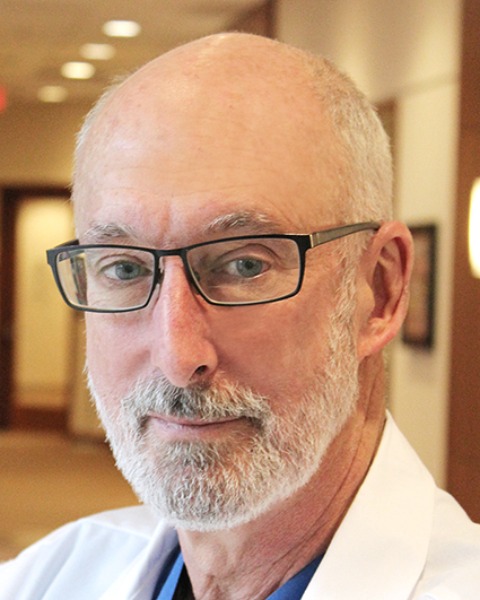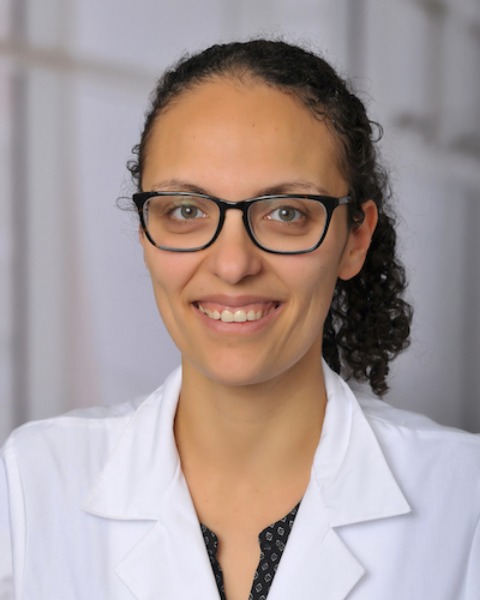Colorectal
26: The Prognostic Role of Post-operative ctDNA after Resection of Colorectal Liver Metastases: A Systematic Review and Meta-Analysis

Brett L. Ecker, MD
Assistant Professor of Surgery
Rutgers Cancer Institute of New Jersey - Rutgers Robert Wood Johnson Medical School, United States- EV
Emma R. Vail, n/a
Medical Student
Johns Hopkins University School of Medicine
Baltimore, Maryland, United States 
H. Richard Alexander, Jr., MD (he/him/his)
Chief Surgical Officer, Professor and Head
Division of Surgical Oncology, Rutgers Cancer Institute of New Jersey - Rutgers Robert Wood Johnson Medical School
New Brunswick, New Jersey, United States- TB
Toni Beninato, MD, MS
Associate Professor of Surgery
Division of Surgical Oncology, Rutgers Cancer Institute of New Jersey - Rutgers Robert Wood Johnson Medical School, United States 
Mariam F. Eskander, MD, MPH
Surgical Oncologist
Rutgers Cancer Institute of New Jersey
New Brunswick, New Jersey, United States
Miral S. Grandhi, MD
Associate Professor of Surgery, Director of Hepatobiliary Surgery, Program Director of Complex General Surgical Oncology Fellowship Program
Division of Surgical Oncology, Rutgers Cancer Institute of New Jersey - Rutgers Robert Wood Johnson Medical School
New Brunswick, New Jersey, United States
Haejin In, MD, MPH, MBA (she/her/hers)
Associate Professor of Surgery, Division of Surgical Oncology
Rutgers Cancer Institute of New Jersey, United States- TK
Timothy J. Kennedy, MD
Associate Professor of Surgery
Division of Surgical Oncology, Rutgers Cancer Institute of New Jersey - Rutgers Robert Wood Johnson Medical School, United States 
Russell C. Langan, MD
Director of Surgical Oncology, Associate Chief Surgical Officer, Associate Professor of Surgery
Rutgers Cancer Institute of New Jersey, Cooperman Barnabas Medical Center - Rutgers Robert Wood Johnson Medical School
livingston, NJ, United States- JM
Jason C. Maggi, MD
Assistant Professor of Surgery
Division of Surgical Oncology, Rutgers Cancer Institute of New Jersey - Rutgers Robert Wood Johnson Medical School, United States - HP
Henry A. Pitt, MD
Chief of Oncologic Quality, Professor of Surgery
Rutgers Cancer Institute of New Jersey - Rutgers Robert Wood Johnson Medical School, United States 
Shishir K. Maithel, MD, FACS
Professor, Department of Surgery
Winship Cancer Institute of Emory University
Atlanta, GA, United States
Brett L. Ecker, MD
Assistant Professor of Surgery
Rutgers Cancer Institute of New Jersey - Rutgers Robert Wood Johnson Medical School, United States
Abstract Presenter(s)
Author(s)
Post-resection detection of circulating tumor DNA (ctDNA) is strongly prognostic of recurrence for patients with localized colorectal cancer (CRC). The sensitivity and specificity of this biomarker in the setting of CRC liver metastases (CRCLM) have not yet been systematically quantified.
Methods:
The Cochrane Central Register of Trials, PubMed, and Web of Science were queried from database inception to June 2, 2023 for English-language publications reporting post-operative ctDNA status and recurrence-free survival (RFS) in patients with resected CRCLM. Weighted median ctDNA positivity rates and RFS probabilities were utilized to estimate the sensitivity and specificity for recurrence at 1, 3, and 5 years after surgery.
Results:
Of 98 records, 10 studies (all non-randomized) were eligible, inclusive of 669 patients. The median weighted follow-up from surgical resection was 30.6 months (range 9.7-77.0 months). The median postoperative MRD positivity rate was 38.5%, and ctDNA status was prognostic of RFS in 10 of 10 (100%) studies. Among ctDNA-positive patients, the weighted rate of recurrence was 75.0%, 92.5%, and 96.8% at 1, 3 and 5 years, respectively. Among ctDNA-negative patients, the weighted rate of recurrence was 35.7%, 59.7% and 60.7% at 1, 3 and 5 years, respectively. Sensitivity and specificity of ctDNA positivity was 67.8% and 30% for recurrence within 1 year, 60.77% and 15.73% for recurrence within 3 years, and 61.45% and 7.60% for recurrence within 5 years, respectively.
Conclusions:
ctDNA-positivity following resection of CRCLM is highly prognostic of recurrence, which may have implications for treatment escalation strategies for this molecularly-selected cohort. In contrast, recurrence was common in the ctDNA-negative cohort, cautioning against de-escalation strategies for such patients.
Learning Objectives:
- Upon completion, participants will be able to define the use of circulating tumor DNA (ctDNA) as a biomarker for colorectal cancer (CRC) prognosis.
- Upon completion, participants will be able to describe the association between ctDNA positivity post-CRC liver metastasis resection and diminished recurrence-free survival.
- Upon completion, participants will be able to interpret the metrics of sensitivity and specificity in the context of clinical practice and risk stratification.
